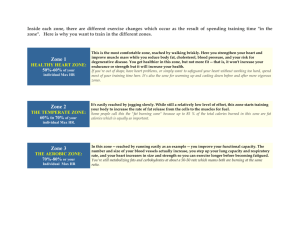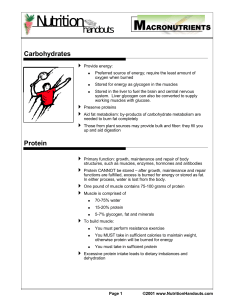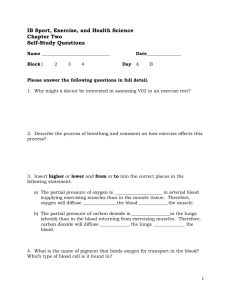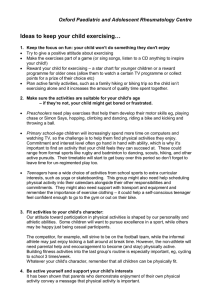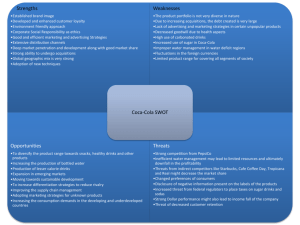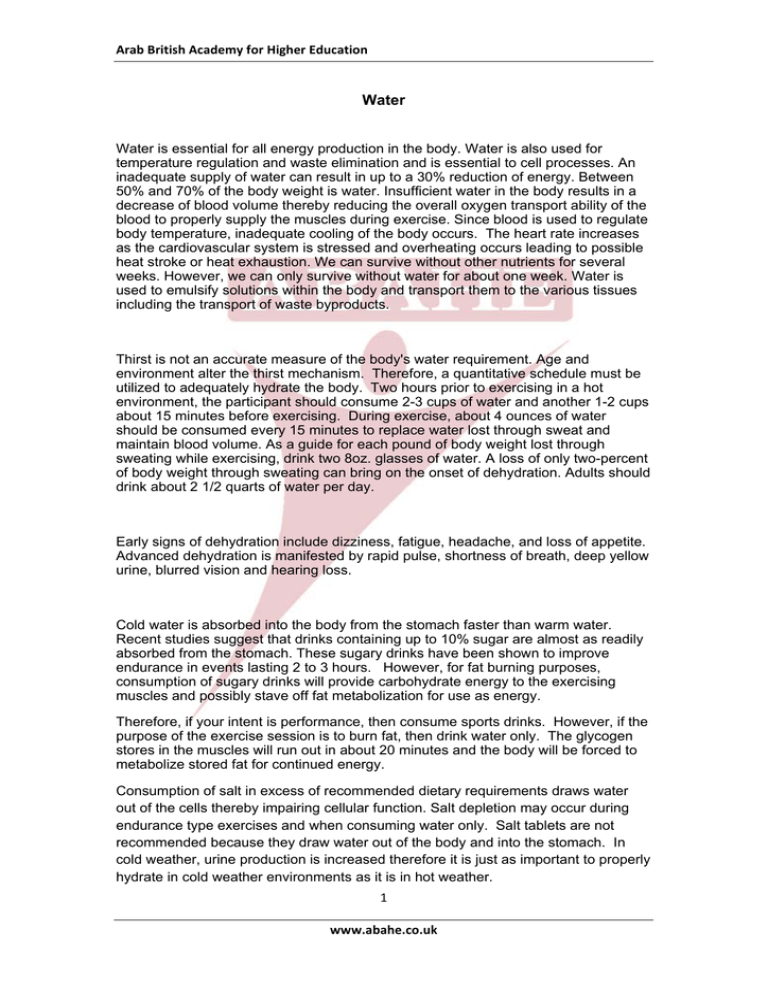
Arab British Academy for Higher Education Water
Water is essential for all energy production in the body. Water is also used for
temperature regulation and waste elimination and is essential to cell processes. An
inadequate supply of water can result in up to a 30% reduction of energy. Between
50% and 70% of the body weight is water. Insufficient water in the body results in a
decrease of blood volume thereby reducing the overall oxygen transport ability of the
blood to properly supply the muscles during exercise. Since blood is used to regulate
body temperature, inadequate cooling of the body occurs. The heart rate increases
as the cardiovascular system is stressed and overheating occurs leading to possible
heat stroke or heat exhaustion. We can survive without other nutrients for several
weeks. However, we can only survive without water for about one week. Water is
used to emulsify solutions within the body and transport them to the various tissues
including the transport of waste byproducts.
Thirst is not an accurate measure of the body's water requirement. Age and
environment alter the thirst mechanism. Therefore, a quantitative schedule must be
utilized to adequately hydrate the body. Two hours prior to exercising in a hot
environment, the participant should consume 2-3 cups of water and another 1-2 cups
about 15 minutes before exercising. During exercise, about 4 ounces of water
should be consumed every 15 minutes to replace water lost through sweat and
maintain blood volume. As a guide for each pound of body weight lost through
sweating while exercising, drink two 8oz. glasses of water. A loss of only two-percent
of body weight through sweating can bring on the onset of dehydration. Adults should
drink about 2 1/2 quarts of water per day.
Early signs of dehydration include dizziness, fatigue, headache, and loss of appetite.
Advanced dehydration is manifested by rapid pulse, shortness of breath, deep yellow
urine, blurred vision and hearing loss.
Cold water is absorbed into the body from the stomach faster than warm water.
Recent studies suggest that drinks containing up to 10% sugar are almost as readily
absorbed from the stomach. These sugary drinks have been shown to improve
endurance in events lasting 2 to 3 hours. However, for fat burning purposes,
consumption of sugary drinks will provide carbohydrate energy to the exercising
muscles and possibly stave off fat metabolization for use as energy.
Therefore, if your intent is performance, then consume sports drinks. However, if the
purpose of the exercise session is to burn fat, then drink water only. The glycogen
stores in the muscles will run out in about 20 minutes and the body will be forced to
metabolize stored fat for continued energy.
Consumption of salt in excess of recommended dietary requirements draws water
out of the cells thereby impairing cellular function. Salt depletion may occur during
endurance type exercises and when consuming water only. Salt tablets are not
recommended because they draw water out of the body and into the stomach. In
cold weather, urine production is increased therefore it is just as important to properly
hydrate in cold weather environments as it is in hot weather.
1 www.abahe.co.uk Arab British Academy for Higher Education All Rights Reserved © Arab British Academy for Higher Education 2 www.abahe.co.uk


